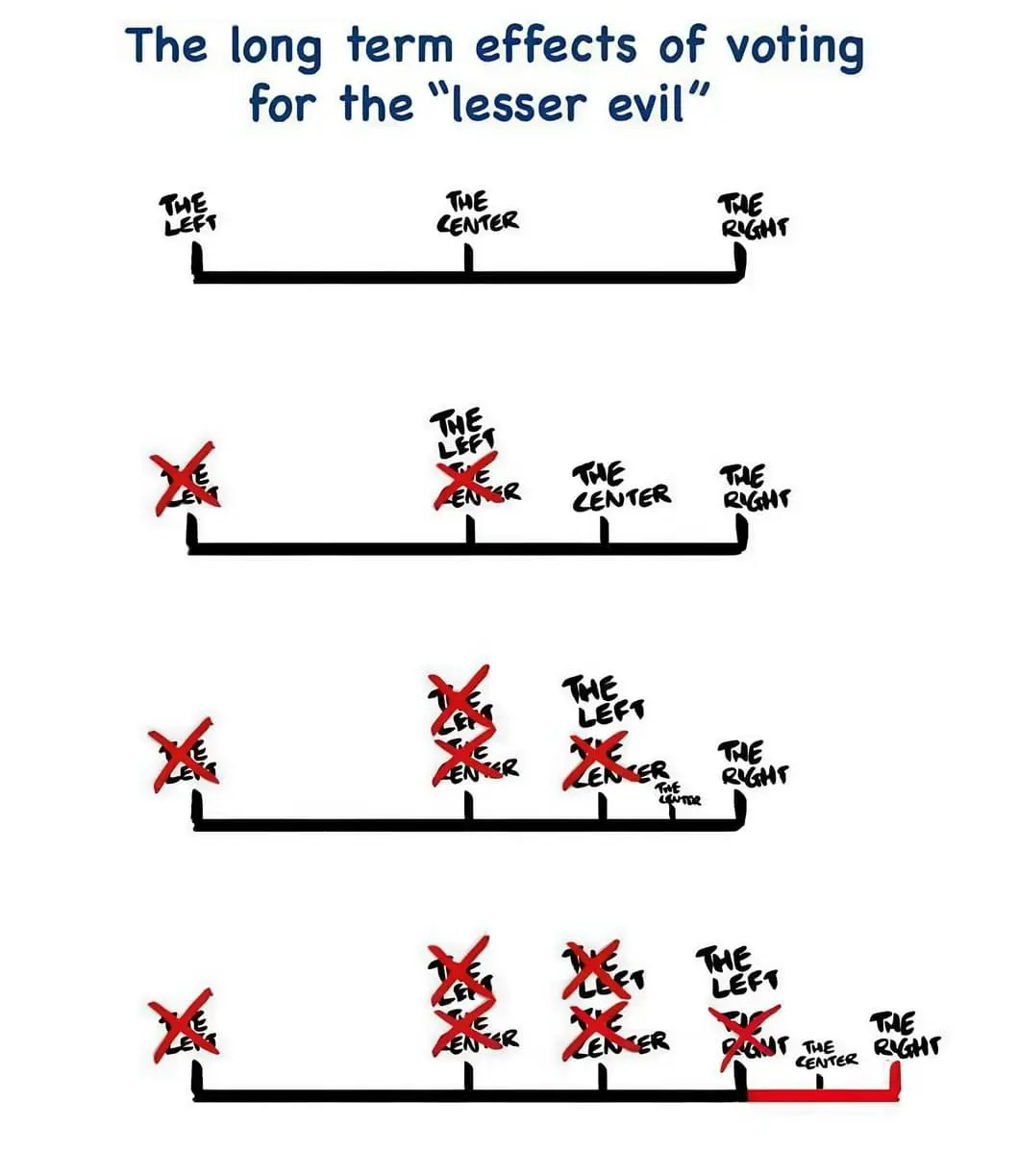this post was submitted on 17 Dec 2024
475 points (78.0% liked)
Memes
46066 readers
1881 users here now
Rules:
- Be civil and nice.
- Try not to excessively repost, as a rule of thumb, wait at least 2 months to do it if you have to.
founded 5 years ago
MODERATORS
you are viewing a single comment's thread
view the rest of the comments
view the rest of the comments

It's certainly an intriguing idea, but its not as good as the current system. It's a hyperreality of voting that would simply exaggerate flaws of the current system.
First off, good luck keeping anything anonymous. And, even if you could, candidate anonymity is a horrible idea, because you'd have even less accountability and more campaign dishonesty than you have now. Without anonymity, politicians have to at least try to fulfill campaign promises if they want to get reelected. But with anonymity, I can get elected and not follow through on campaign promises because when I run for reelection nobody knows which candidate is me and I can just lie again.
You'd probably also seriously exacerbate political capture. In the interest of putting forth the best policy proposals, people like presidential candidates would certainly outsource writing to powerful lobbies that have the top policy analysists and writers. And these lobbies or other groups would almost certainly only offer services in exchange for certain favors once the candidate is in office. It would lead to massive corruption, more than we're already seeing, because at least without anonymity we can put names to faces and prompt some honesty.
Plus, you'd cut out so many candidates. Not everyone excels at writing. Some candidates might articulate their plans best in real time and on a stage (like JFK, or Reagan, etc.). Demanding that everyone only write and publish policy proposals removes the ability to gauge how good they'd be in office, interacting with staff and other world leaders.
Combining anonymity with a bracketed system would also create an echo chamber, where candidates learn each other's messages every round and the survivors shift to mimic the most popular message to bolster their odds of making it into office. In the end, all 3 people will sound the same in a desperate bid to copycat the clear winner and steal votes. Which obviously creates issues for voting again, like the aforementioned Condorcet's paradox.
Also, voter engagement. We can barely get people to turnout when they are emotionally won-over by a given personality candidate, it would probably crater if voting were a purely rational process as @lifeinmultiplechoice suggests. If you take after John Adams or Rousseau, this isn't entirely problematic because you don't believe in carrying out the principle of "the will of the people" in a literal sense (not to say J.A. was Rousseauian, he obviously was not, but they overlap in this area of restricted voting). But if you are interested in accurately representing "the will of the people" in a non-gnostic sense, this is obviously an unsatisfactory system.
This isn't meant to dismiss @lifeinmultiplechoice out of hand, I admire the imagination. I think they're onto something when they point out that technology has sort of... swapped lenses on the camera of Democracy. We can seriously reinvent Democracy in ways that overcome previous hurdles due to all our technology now... we just don't know how exactly yet.